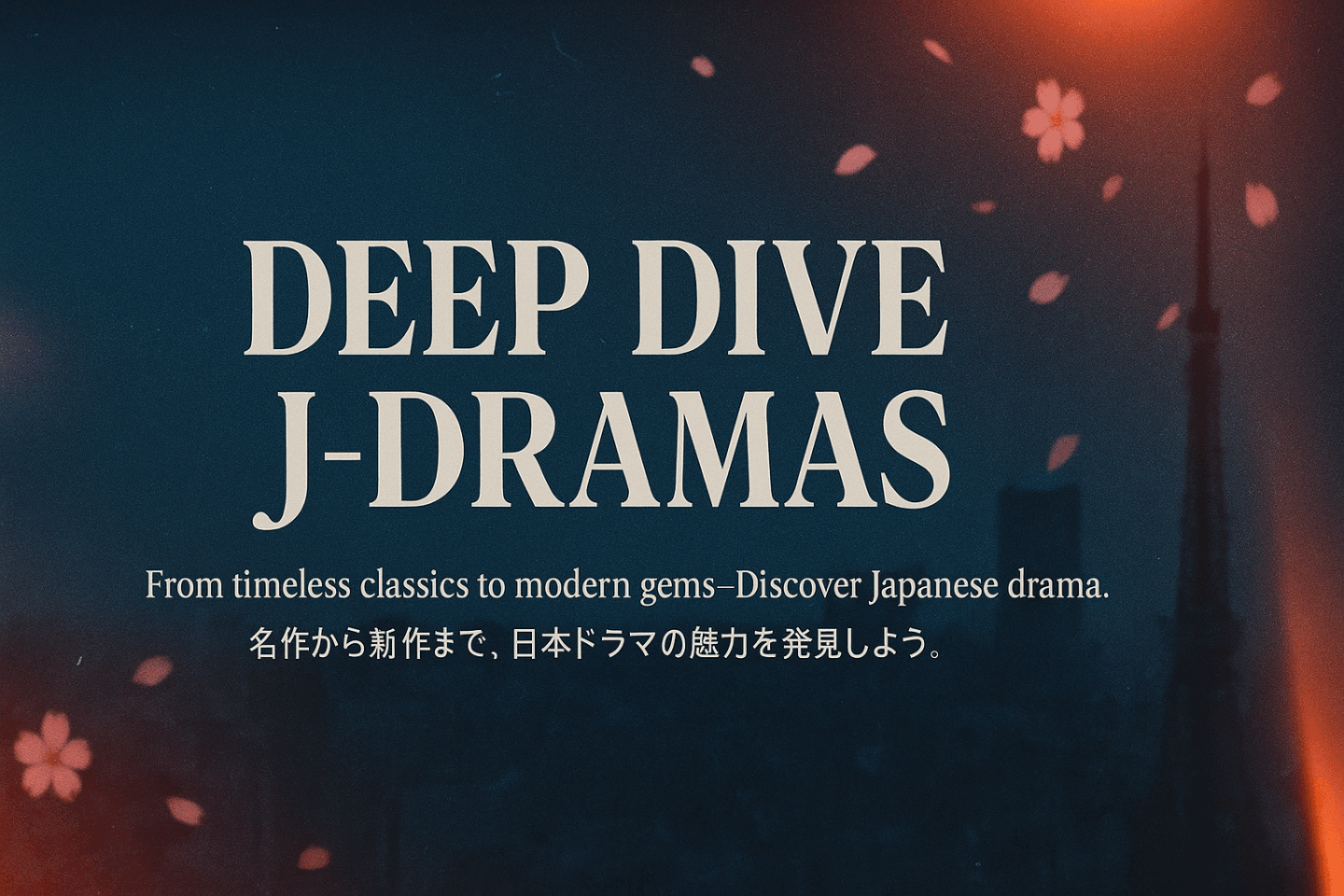“First Love” – How a J-Drama Built on Five Senses Became a Global Classic
“Life is a gigantic jigsaw puzzle,” murmurs heroine Yae Noguchi (Hikari Mitsushima) as Netflix’s First Love fades in. The line feels prophetic: this nine-episode series scatters glittering pieces—smell, sound, taste, touch, even sixth-sense intuition—before snapping them together in a finale that leaves viewers worldwide ugly-crying in multiple languages.
Why This Show Matters Outside Japan
- Universal nostalgia: Even if you never rode Sapporo’s trams, the ache of a half-remembered love story needs no translation.
- Era-spanning soundtrack: Two Hikaru Utada tracks—1999’s “First Love” and 2018’s “Hatsukoi”—bookend three timelines (late ’90s, 2000s, present day). Their global Spotify stats skyrocketed after the show dropped.
- Accessible on Netflix: High production values, 30+ subtitle options, and carefully localized cultural notes bring a once-niche J-drama tradition to new viewers.
The Five-Sense Structure (Episodes 1-6)
| Episode | Sense Trigger | Key Moment (No Major Spoilers) |
|---|---|---|
| 1 “Lilac in Bloom” | Smell – lilac perfume | A single whiff cracks open Yae’s lost high-school memories. |
| 2 “Your Voice” | Hearing – familiar tears | A wordless reunion proves that one tear can say more than dialogue. |
| 3 “Napolitan” | Taste – ketchup pasta | Japan’s retro “Napolitan” sparks comfort… and heartbreak. |
| 4 “Space Oddity” | Sight – Mars probe postcard | The lovers’ names literally drift among the stars. |
| 5 “Talk in Sign Language” | Touch – silent gestures | A hospital corridor, a sudden flash of muscle memory. |
| 6 “The Sixth Sense” | Intuition | That creeping feeling you lost something priceless—but can’t name it. |
Proust, Pop Songs, and “Automatic” Bodies
Writer–director Yuri Kantake hides lyrics all over the screenplay. When Utada’s lines describe a heart that “races automatically,” the camera cuts to characters whose bodies move before their brains catch up—a visual representation of what psychologists call the Proust Effect. Even viewers who never read Marcel Proust sense its pull: smell or sound bypassing logic to yank old feelings to the surface.
Cast & Crew at a Glance
- Hikari Mitsushima (“Yae Noguchi”) – delivers one of the finest ugly-cry scenes since Blue Is the Warmest Colour.
- Takeru Satoh (“Harumichi Namiki”) – better known overseas from the Rurouni Kenshin films; here, he dials action-star swagger down to wounded puppy eyes.
- Director & Screenwriter: Yuri Kantake (Sabakan), one of the few Japanese female showrunners with full creative control.
- Supporting MVPs: Yagi Rikako, Kido Taisei, Kaho, Minami, KiKi Kirin (voice cameo).
🎵 Theme Song
“First Love” by Hikaru Utada
Originally released in 1999, this iconic ballad became a defining love song for a generation in Japan. For the series, it serves as both a nostalgic anchor and an emotional compass, symbolizing youthful passion, heartbreak, and enduring affection across time.
この投稿をInstagramで見る
🎶 Insert Song
“Hatsukoi” by Hikaru Utada
Written nearly two decades after “First Love,” this 2018 song reflects a more mature and reflective view of love. Used as an insert track throughout the series, it beautifully complements scenes of longing and emotional reconnection.
Episodes 7-9: When Planets (and Lovers) Realign
The series’ astronomy motif isn’t window dressing. Jupiter and Mars realign every 15–17 years—mirroring the time Yae & Harumichi spend drifting apart. When the planets finally “retrograde,” the show rewards patient viewers with an Episode 8 catharsis titled “Afternoon Proust Effect.” Make sure your tissue stockpile is robust.
Cultural Cheat Sheet for Non-Japanese Viewers
- Napolitan spaghetti = Japan’s ketchup-based comfort food, invented after WWII.
- Self-Service Karaoke boxes reflect the late-’90s teen culture boom.
- “Nozomi” Mars probe campaign (1998) let ordinary Japanese send their names to space; over 270k entries, including our heroine.
Should You Watch It?
If you enjoy Your Name (Makoto Shinkai) or Normal People (Sally Rooney), “First Love” offers a middle ground: grounded adult romance filtered through dreamy-yet-precise sensory details. Yes, it’s nine hours; yes, Episode 3’s ketchup pasta montage is that long. But when the end credits roll to Utada’s English chorus—“You are always gonna be my love…”—you’ll realise Netflix’s algorithm finally got one perfectly right.



